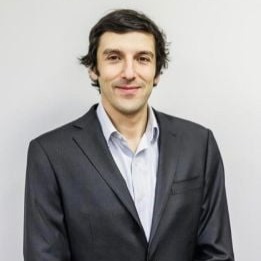

Senior Legal Counsel | GHD



Felipe Hermosilla Torres
Senior Legal Counsel | GHD
Team size: 2
What are the most significant cases, projects and/or transactions that you and/or your legal team have recently been involved in?
Over the past three years, I have had the opportunity to support the legal function through a period of rapid transformation, as the Chilean office has nearly tripled in size. This growth has brought with it a significant increase in the volume and complexity of legal work, particularly in integrating the legal team into key workflows that are critical. These initiatives have helped position the legal team not merely as a support function, but as a strategic partner in enabling sustainable growth and operational resilience.
Besides engineering and design contracts with mining and energy companies, a major contract to provide environmental services aimed at complying with environmental compliance programmes in mining projects has been an extraordinary experience. Considering it does not involve construction but only environmental services in Latin America, the amount is significant and the experience invaluable.
How do you approach managing legal aspects during periods of instability or crisis to ensure the organisation’s resilience?
In times of uncertainty—whether due to regulatory changes, contractual contingencies, or external crises—I prioritise clarity, anticipation, cross-functional communication, and thorough legal research to guide our operations. Research today is as important as understanding how clients operate in the mining and energy sectors.
In every contract and service, uncertainty exists, and for us it is key to ensure that we limit exposure not only through legal clauses but also with a strong technical understanding of the scope and client needs.
Given the current geopolitical shifts and growing uncertainties around international free trade, has your company’s risk profile evolved, and are you taking measures to address these challenges?
While our consulting work has not been directly impacted by international uncertainty so far, we are closely monitoring the situation. The legal and commercial environment is evolving rapidly, and it is essential to remain both vigilant and proactive.
To date, the most visible effects have been on the availability and cost of certain products and materials, rather than on the services we provide. However, these disruptions could eventually have an indirect impact on the broader market—affecting project timelines, client priorities, and regulatory expectations.
As a legal team, we focus on identifying potential downstream risks and ensuring that our contracts and internal processes are resilient. We also maintain close communication with our commercial and operational teams to adapt quickly to emerging challenges.
Managing risk is a constant priority, but it also involves knowing when to step back—recognising that, in some cases, it may be more prudent to forgo an opportunity than to proceed under conditions that compromise our standards or long-term interests.
Have you had any experiences during your career as a lawyer that stand out as particularly unique or interesting?
Absolutely. Throughout my career, I have had the privilege of working across a wide spectrum of roles that have given me a unique perspective on the intersection of public infrastructure, private enterprise, and legal strategy. One particularly formative experience was serving as Chief of Legislative Affairs at the Ministry of Public Works in Chile, where I was directly involved in shaping and implementing national infrastructure policy. That role gave me deep insight into how major public projects are conceived, funded, and executed at the institutional level.
In global and local law firms, I gained critical experience advising multinational clients in complex infrastructure and construction matters. My practice has consistently focused on high-value projects: I have advised on disputes and contract administration for rail developments, football stadiums, bridges, roads, reservoirs, and engineering services linked to mining and energy ventures.
What makes my trajectory unique is the ability to move seamlessly between the public and private sectors. I have advised ministers of public works, litigated disputes for international clients, and supported infrastructure development for both state-owned and global mining companies. This blend of experience—with the State, public enterprises, global firms, and national industries—has equipped me with a 360-degree view of how infrastructure projects succeed or fail, both legally and strategically.
Has AI had a meaningful impact on how your legal team works during this time?
We are in the early stages of adopting AI tools, primarily for contract review and risk analysis. These tools have improved our turnaround times and consistency in drafting, although all outputs are still reviewed by legal professionals. We see great potential in AI, but maintain a cautious approach to ensure quality and accountability in decision-making.